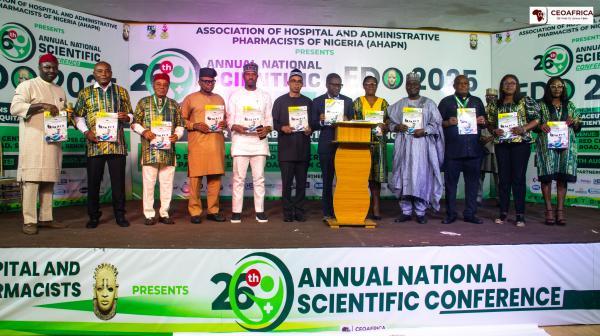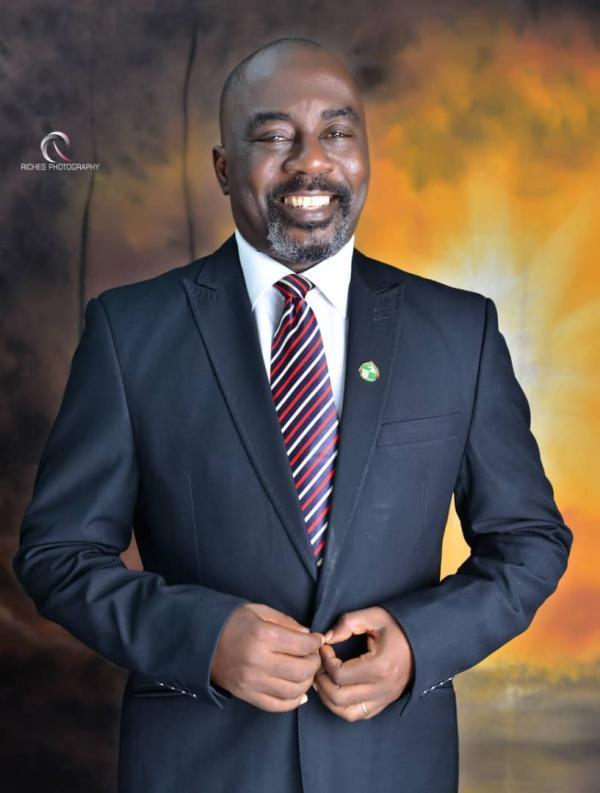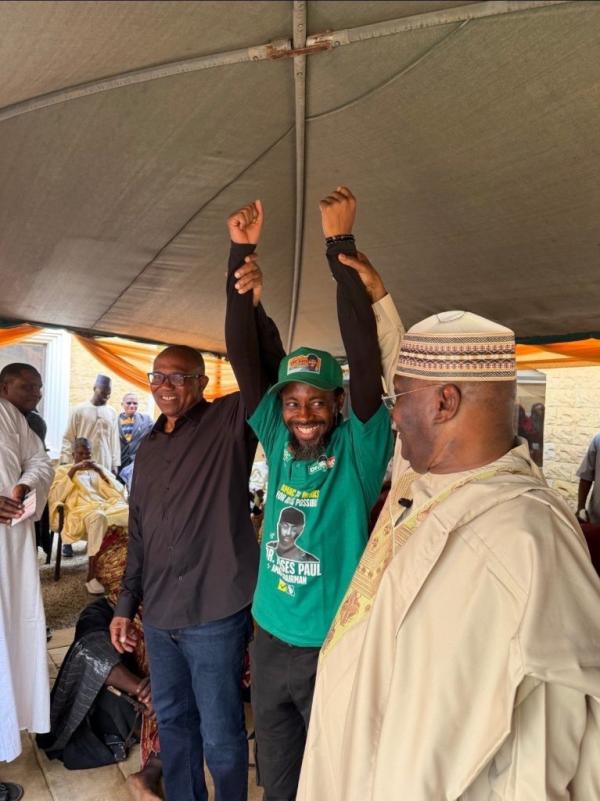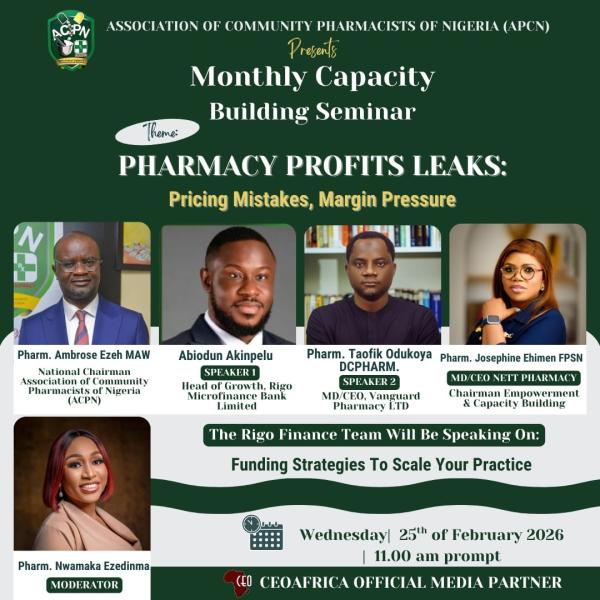
Past Chairmen of the Association of Hospital and Administrative Pharmacists of Nigeria (AHAPN) shared their insights and experiences in a significant panel discussion aimed at addressing pressing challenges in pharmaceutical care and exploring the way forward for the profession during the just concluded 26th Annual National Scientific Conference of the association.
During this event held on August 5, 2025, stakeholders in the pharmaceutical industry—including healthcare professionals, policy makers, clinicians, and distinguished members of academia—gathered at the SIO Event Center in Benin City, Edo State.
Concerns were raised by pharmacists, and the session aimed to provide answers to the community's questions—many of which have been circulating on social media regarding the state of the profession and the union’s past achievements.
The living ancestors included Pharm. Isah Maji Yakubu, Pharm. Martins Olanipekun Oyewole, Pharm. (Dr.) Kingsley Chinedu Amibor, and Pharm. Olabode Ogunjemiyo, each bringing a wealth of knowledge and experience to the table.
Pharm. Isah Maji Yakubu, who served as chairman from 2012 to 2015, opened the discussion by reflecting on the growth of the association. “It is always our desire, as past chairmen, to see that we are growing from strength to strength, especially in our practice area,” he stated.
He noted the significant achievements during his tenure, including the successful transition of the association's name from the Nigeria Association of Hospital and Administrative Pharmacists (NAHAP) to AHAPN, which underscored their commitment to establishing a well-defined professional identity. Yakubu remarked, “As pharmacists, no matter how hostile the environment you are working in, you need to be diplomatic and analyze each situation.”
Pharm. Martins Oyewole highlighted the importance of consistent efforts in advocating for the profession. “AHAPN has been growing in leaps and bounds over the years,” he proclaimed. He credited the association with supporting members in advancing to higher grade levels within the healthcare system and emphasized that “the task is always daunting, but continued efforts lead to significant achievements.” Oyewole called for the establishment of a strategic advocacy committee to track accomplishments and identify outstanding objectives, reinforcing the importance of teamwork within the profession.
Echoing these sentiments, Pharm. (Dr.) Kingsley Amibor noted the tremendous progress in the field of clinical pharmacy. “There was a time when window dispensing was the norm in hospital pharmacy practice; today, clinical pharmacy has become standard,” he stated. Amibor acknowledged the validity of the complaints expressed by current pharmacists but emphasized the shared purpose of collaboration and knowledge exchange to overcome these challenges.
Pharm. Olabode Ogunjemiyo effectively coordinated the question-and-answer session, providing insightful and thoughtful responses to the various inquiries posed by attendees. His ability to engage with the audience created an atmosphere of openness and camaraderie, allowing pharmacists to express their concerns while seeking advice from experienced leaders in the field.
The discussions fostered a spirit of unity among conference participants, as they engaged in meaningful dialogue regarding the future of pharmacy practice in Nigeria. The exchange of ideas and experiences amongst the past chairmen and current practitioners underscored the importance of mentorship and collaboration in navigating the complex landscape of healthcare.
The collective insights from these seasoned professionals served as a guiding light for current and aspiring pharmacists, reinforcing the commitment to pursuing excellence in pharmaceutical care and advocacy within the industry.






















